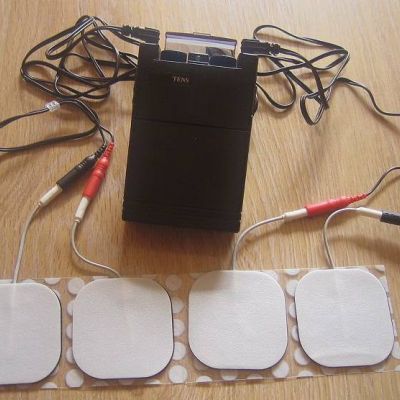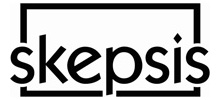TENS Transcutaneuos Electrical Nerves Stimulation

- ‹ vorige
- 951 van de 1068
- volgende ›
http://www.kingselectronics.be/DIGITALE_TENS_(EV-803P) ![]()
WORDT OOK GEBRUIKT DOOR DOKTERS, ZIEKENHUIZEN, KINESISTEN ENZ.
WAT IS TENS?
TENS is de afkorting van Transcutane Elektrische NeuroStimulatie
= via de huid het prikkelen van de zenuwen met behulp van een elektrisch impuls
Pijn is een waarschuwingssignaal dat aangeeft of ons lichaam beschadigd is of dreigt te worden.
Pijn wordt vaak met medicijnen onder controle gehouden. Al snel worden meer dan 2000 pijnstillers per patiënt per jaar ingenomen met allerlei bijwerkingen van dien. TENS is een betere mogelijkheid om pijn te bestrijden.
Tens is voor de verkoper zelf natuurlijk het aller- allerbeste, maar dat is daarom nog niet waar voor degeen die last van pijn heeft.
Heel veel Rare Apparaten die allerlei voor het verlichten van pijn aanbevelen vallen onder TENS.
Per apparaat valt niet uit te maken of het zo werkt dat de onderzoeksresultaten er op van toepassing zijn, laat staan dat enig persoonlijk voordeel kan worden getoetst.
Sommige pijnpoli's ![]() zetten TENS in als een van de opties en dat geeft de mogelijkheid eerst gedurende een proefperiode en onder begeleiding na te gaan of baat wordt ondervonden. En vooral om te voorkomen dat wegens zelfdokteren diagnoses worden gemist.
zetten TENS in als een van de opties en dat geeft de mogelijkheid eerst gedurende een proefperiode en onder begeleiding na te gaan of baat wordt ondervonden. En vooral om te voorkomen dat wegens zelfdokteren diagnoses worden gemist.
.
De reden dat de leek een apparaat niet kan inschatten is simpel dat Nederland geen effectiviteitslabels kent en dat in Amerika massaal de wetgeving wordt ontlopen met de zogenaamde "grandfather-construction":
Bijna iedere leverancier voor TENS-apparatuur weet daarmee terug te verwijzen naar een of ander apparaat van vóór 1976, -het jaar dat de wet van kracht werd-, waarmee het aantonen van werkzaamheid kan worden ontlopen.
In 2010 heeft de FDA een nieuw concept richtlijn opgesteld die aan TENS-apparaten wat meer vrijheid geeft:
http://www.fda.gov/downloads/MedicalDevices/DeviceRegulationandGuidance/GuidanceDocuments/UCM207111.pdf ![]()
The transcutaneous electrical nerve stimulator for pain relief should be intended for use as an adjunctive therapy for pain management for medical purposes such as symptomatic relief of chronic intractable pain, relief of acute post-surgical and post-traumatic pain, and relief of pain associated with arthritis. For purposes of this guidance, we refer to products subject to this guidance as TENS devices for pain relief. TENS devices for pain relief have been assigned product code GZJ. TENS devices for relief of pain associated with arthritis have been assigned product code NYN.
. . . .
If a transcutaneous electrical nerve stimulator is intended for another use, such as in the diagnosis, cure, mitigation, treatment, or prevention of disease or to affect the structure or function of the human body other than as described in this document, that transcutaneous electrical nerve stimulator is beyond the scope of this guidance document.
Om een verder idee van een mogelijke werkzaamheid te krijgen zijn dus andere bronnen nodig zoals :
http://www.aetna.com/cpb/medical/data/1_99/0011.html ![]()
1. Aetna considers transcutaneous electrical nerve stimulators (TENS) medically necessary durable medical equipment (DME) when used as an adjunct or as an alternative to the use of drugs either in the treatment of acute post-operative pain in the first 30 days after surgery, or for certain types of chronic, intractable pain not adequately responsive to other methods of treatment including, as appropriate, physical therapy and pharmacotherapy. However, TENS is considered experimental and investigational for acute pain (less than 3 months duration) other than post-operative pain. TENS is also considered experimental and investigational for acute and chronic headaches, deep abdominal pain, pelvic pain, temporomandibular joint (TMJ) pain and all other indications because there is inadequate scientific evidence to support its efficacy for these specific types of pain.
. . . .
2. Note: When TENS is used for acute post-operative or chronic intractable pain, Aetna considers use of the device medically necessary initially for a trial period of at least one month but not to exceed two months. The trial period must be monitored by the physician to determine the effectiveness of the TENS unit in modulating the pain. After this 1-month trial period, continued TENS treatment may be considered medically necessary if the treatment significantly alleviates pain and if the attending physician documents that the patient is likely to derive significant therapeutic benefit from continuous use of the unit over a long period of time. The physician's records must document a reevaluation of the member at the end of the trial period, must indicate how often the member used the TENS unit, the typical duration of use each time, and the results.
http://www.ncbi.nlm.nih.gov/pubmed/11687055 ![]()
OBJECTIVES:
To evaluate the effectiveness of TENS in chronic pain.
REVIEWER'S CONCLUSIONS:
The results of this review are inconclusive; the published trials do not provide information on the stimulation parameters which are most likely to provide optimum pain relief, nor do they answer questions about long-term effectiveness. Large multi-centre randomised controlled trials of TENS in chronic pain are urgently needed.
.
http://www.ncbi.nlm.nih.gov/pubmed/19370680 ![]()
OBJECTIVES:
To assess the effects of TENS on pain in labour.
AUTHORS' CONCLUSIONS:
There is only limited evidence that TENS reduces pain in labour and it does not seem to have any impact (either positive or negative) on other outcomes for mothers or babies. The use of TENS at home in early labour has not been evaluated. TENS is widely available in hospital settings and women should have the choice of using it in labour.
.
http://onlinelibrary.wiley.com/o/cochrane/clsysrev/articles/CD006276/frame.html ![]()
Objectives
The aim of this systematic review was to determine the effectiveness of TENS for cancer-related pain in adults.
Plain language summary
Transcutaneous electrical nerve stimulation (TENS) for cancer-related pain in adults
Cancer-related pain is complex and multidimensional but is mostly managed using drug therapy. There is increasing recognition of the need for non-drug approaches and TENS may have a significant role to play. Only two studies met eligibility criteria for this review. TENS was given to five participants in one study and 41 participants in the other. Consequently, there is insufficient evidence to judge whether TENS should be used in adults with cancer-related pain. Further research using well designed clinical trials is needed to improve knowledge in this field.
Leveranciers zullen uiteraard veelbelovend adverteren, dus let op de prijs voor een bescheiden kans, temeer omdat er probleemloos een schertsapparaat kan worden aangeboden.
Jan Oosterhof promoveerde 16 februari 2012 op een TENS-onderzoek, dat opleverde dat TENS niet viel te onderscheiden van een placebobehandeling, maar dat desondanks sommige pijnlijders geruime tijd baat ondervonden.
Een bevestiging dus van wat hierboven is vermeld.
http://www.umcn.nl/Research/Scienceagenda/Pages/PromotieOosterhof.aspx ![]()
WAARSCHUWING:
http://www.skepsis.nl/tens.htm ![]()

